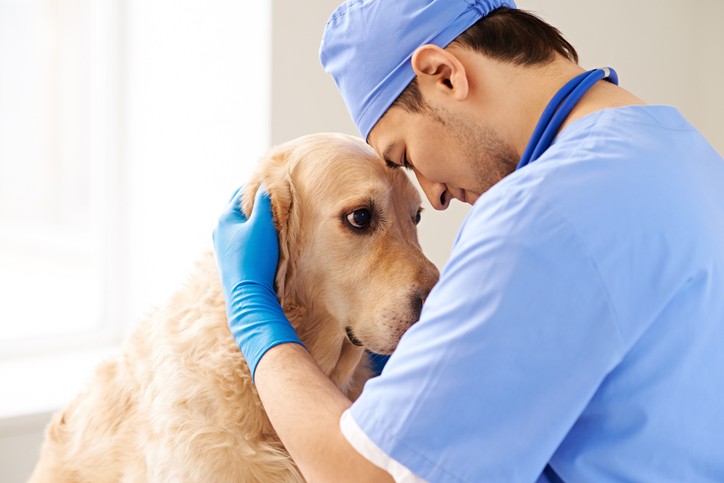A friend recently confessed that it was harder to say goodbye to her dog than her Mum when both of them passed away within about 2 months of each other. Her Mum was old, and also unwell and not living a happy life, so you can understand why she would feel that whilst it was sad to say goodbye, it was the circle of life completing itself as it should. But when it came to her beloved dog, it was a different matter!
What is the evidence?
There is plenty of evidence to suggest that people do feel more sympathy towards animals that people, for example, another case in point it was recently reported in the Washington Post that a young dog was caught up in an altercation and ended up being shot in the head.
The dog was sitting in the car when his owner was approached by a mugger. He jumped out and possibly bit the assailant who ran towards a waiting car. From that car, another person fired a gun and hit the puppy in the face.
If they get caught they will face prosecution. But in addition they already are facing the wrath of the public – here’ some of the comments:
“We need a new law: shoot a dog, do twenty years,” reads one of the comments on a short Washington Post story about the incident.
“The robber potentially stole something of irreplaceable value: the life of the man’s best friend,” reads another. “We’re all pulling for you, Fido.”
“I hope he pulls through,” reads a third. “I would love to contribute to the dog’s medical bills if needed.”
It seems in this case the dog victim gets more sympathy than outrage against an assault on a person.
For example, who offers to pay medical bills when there’s an incident that affects an individual? Would you?
It seems that understanding the source of compassion for animals vs humans is quite complex.
What are the reasons?
“The key variable is vulnerability,” said Jack Levin, a Northeastern University professor who was one of the authors of a study titled, “Are People More Disturbed by Dog or Human Suffering?”
The study, with co-authors Arnold Arluke and Leslie Irvine, presented 256 undergraduates with fictitious news reports about a brutal beating that involved one of four creatures: an adult human, a child, an adult dog and a puppy. What the results showed was that people felt more strongly for children, puppies and adult dogs than they did for adult humans.
“We care about those who need to be cared about,” Levin said. “Puppies, infants and adult dogs are all viewed by us as in need of our help. The only category that is seen as beyond that need are adult human beings.”
Dogs, he said, are also often regarded as members of our family. Anyone who has lost a pet knows that the grieving can go on for a very long time.
Hal Herzog has spent three decades studying the psychology of human interactions with animals and wrote the book “Some We Love, Some We Hate, Some We Eat.” “It’s so deliciously psychologically complicated,” Herzog said of the relationship between people and their canine companions. “It’s common for people to feel great sympathy for animals, and that’s one of the good things about our species,” he said. “We’re one of the only species that can care that much about another species.”
He pointed to how many people didn’t leave their homes during Hurricane Katrina because they didn’t want to abandon their pets. Women in abusive relationships have also been found to stay in dangerous situations for the same reason. It is why more shelters for victims of domestic violence are accepting pets.
Is it universal?
At the same time, not every kind of animal or even every type of pooch pulls at us the same way. We still eat cows and chickens. We still hate mice and rats. And there are some dogs we trust more than others.
For example when we consider this against the backdrop of the dog that recently attacked a child in Sydney and was euthanised, we can understand that not too many people would have sympathy for that dog.
It does really make sense. Animals rely upon us to take care of them, and we see adult humans as being responsible for themselves. That sympathy we feel for dogs that are hurt, is really what makes us human.
What does this mean for pet professionals?
This all serves to highlight the level of responsibility professionals in the pet industry have when taking care of pets for others – who are seen as family members. It is no different than the responsibility of a child care worker or a doctor dealing with children. This responsibility means that it’s more important than ever to make sure you have the right insurance in place, in case there is an incident out of your control which could end up costing you your business, if a client or member of the public decided to take action against you.
What do you think about the responsibility attached to take care of pets for others? Do you care more about what happens to your pets and the pets in your care than anything else? If so, tell us about it, and why.
Liz Walden
Latest posts by Liz Walden (see all)
- Assessing your insurance risks - October 29, 2021
- 4 questions to ask about professional indemnity insurance - October 29, 2021
- Public Liability vs. Professional Indemnity: What’s the difference? - April 26, 2021











Leave A Comment